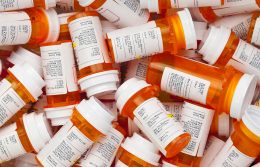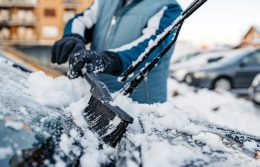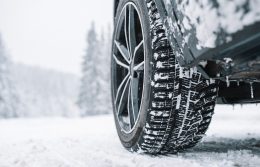Car Emergency Kit Checklist
Most drivers tend to focus on car emergency kits during the winter months. But accidents, by their very nature, are unexpected.
In 2021, there was a reportable crash on Texas roads every 57 seconds, according to the Texas Department of Transportation. Texans drive many miles during the summer months, from regular grocery store runs to road trips and family vacations. So, it’s always a good idea to prepare for unforeseen circumstances.
A well-stocked car emergency kit can keep you cool, hydrated, and safe in the event of an accident or flat tire. Here’s what you should keep in your car at all times in your year-round car emergency kit.
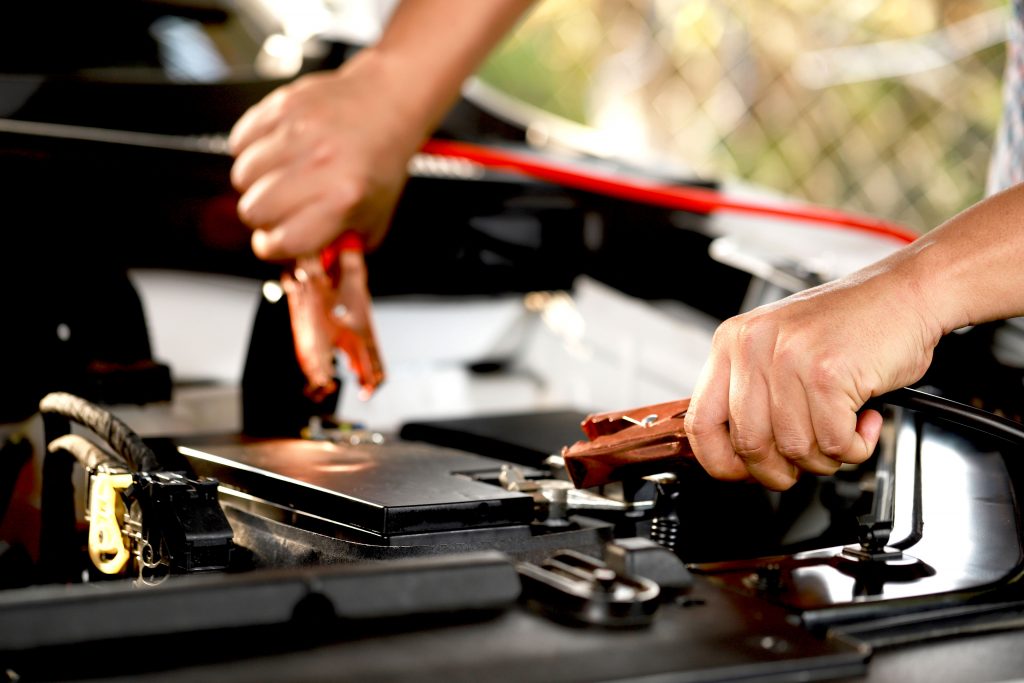
Tools:
- Flashlight: A flashlight can be useful during nighttime breakdowns or in case of power outages.
- Jumper cables: Dead car batteries can happen anytime, anywhere.
- Multipurpose tool: A multipurpose tool, such as a Swiss Army knife, can come in handy during emergencies to cut seat belts, break windows, and perform other lifesaving tasks.
- Roadside flares: In case of a breakdown on a busy road or highway, roadside flares can help alert other drivers to your situation and prevent accidents.
- Registration and insurance information: It’s the law!
- Spare tire and jack: Even if you have roadside assistance coverage, just in case you’re out of cellular range to make a call or simply want to fix your flat yourself, ensuring you have a spare tire and jack can help you get back on the road ASAP.
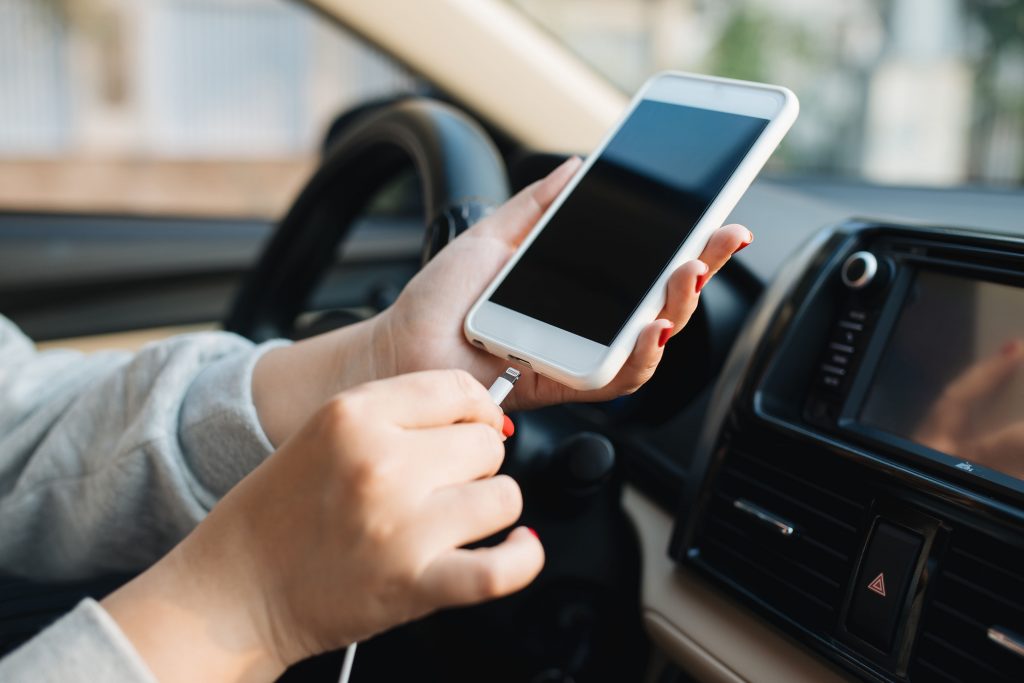
Supplies:
- Blankets: Blankets will keep you warm on cold nights and can help wrap wounds. Vacuum-seal your blankets to make the best use of space in your trunk.
- Portable chargers: We rely on our phones for almost everything these days, including navigation and emergency calls. Keep a portable charger for your phone and download maps offline for long road trips to prevent getting lost if you lose signal.
- Rain poncho/umbrella: You’ll be much more comfortable stuck in a rainstorm with sensible rain gear.
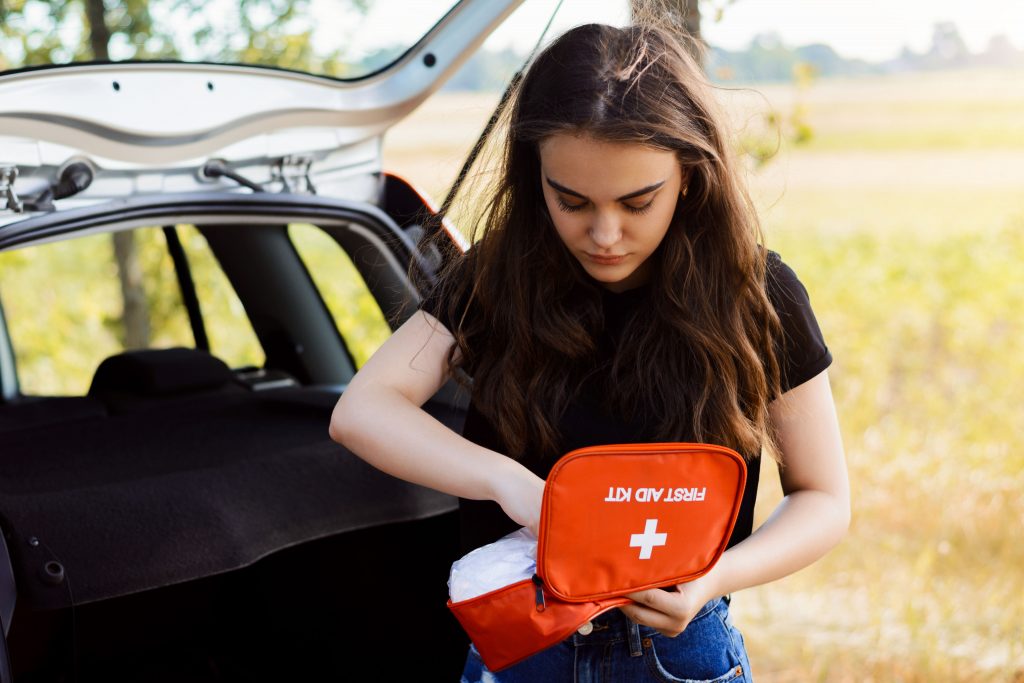
Health:
- First-aid kit: Include essential items such as bandages, antiseptics, pain relievers, and gauze. First-aid training is always helpful too and teaches you how to help passengers experiencing health emergencies.
- Nonperishable snacks: Granola bars or trail mix can help keep hunger at bay while waiting for help to arrive.
- Water: Keep a few bottles of water handy in case of a breakdown to prevent dehydration. Keep in mind that the heat will eventually damage plastic bottles, so you may need to protect them in an insulated cooler.
- Info: Also make sure you know what to do in a heat emergency.
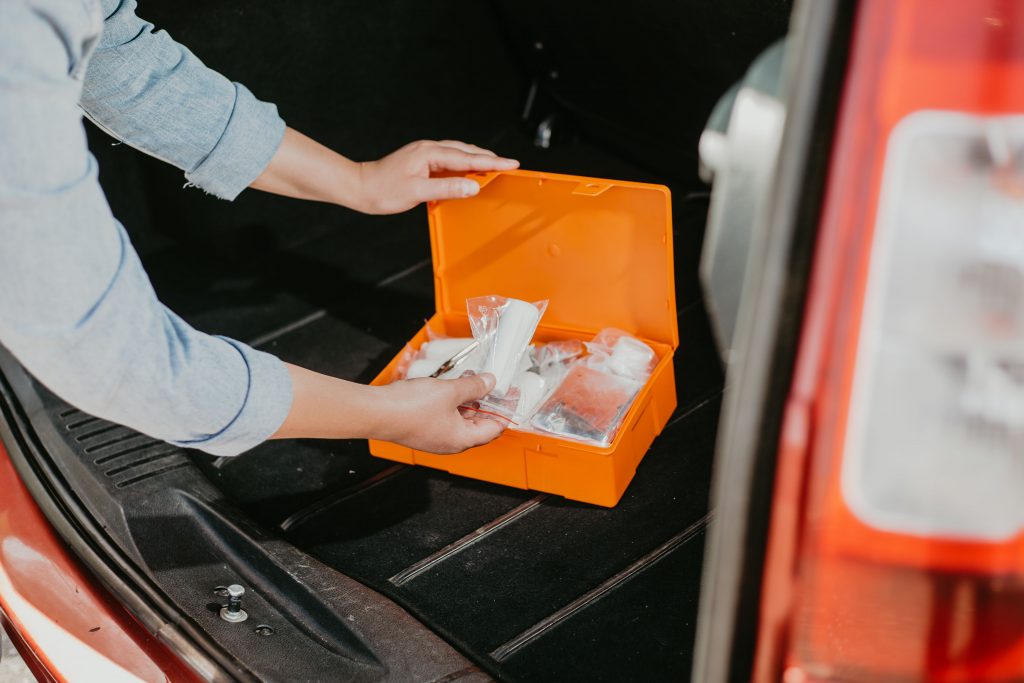
Emergency Car Kit to the Rescue
Keeping a well-stocked car emergency kit can help you stay prepared for hiccups in your travel plans. Regularly check and restock your emergency car kit to ensure you and your passengers are safe and comfortable during emergencies.
No one plans to have unexpected maintenance issues come up on the road. It’s always a good idea to brush up on roadside safety tips. Be sure to call your Texas Farm Bureau Insurance Agent to enroll in Roadside Assistance Coverage for those times when you need additional assistance.
Coverage and discounts are subject to qualifications and policy terms and may vary by situation. © 2023 Texas Farm Bureau Insurance

